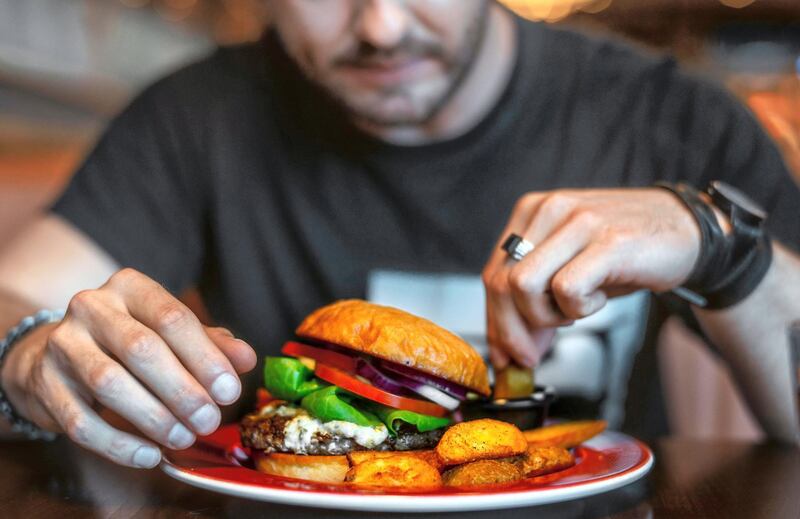The growing popularity of American-style fast food in the Arab world could lead to a surge in prostate cancer, an expert says.
Dr David Levy, a urologist at Cleveland Clinic in the United States, rejected the claim that genetics explained the comparatively low rate of prostate cancer in the Middle East.
He said the traditional Arab diet, which is rich in foods such as lentils, tomatoes and pomegranates, had been responsible for protecting men against the disease.
But he warned that prostate cancer rates could rise rapidly if the region moved further towards a “burger and fries western diet” instead of meals with high levels of omega-3, which is believed to protect against cancers.
Concerns about unhealthy diets in the UAE is growing, with obesity levels on the increase particularly among children.
A rise in popularity and availability of fast food across the world is among the factors blamed for what has been described as the "fattest generation in history".
“When men of Middle East and North African origin adopt a westernised lifestyle, their risk reverts to that of the majority of the westernised population, and that is substantially higher,” Dr Levy said. “I think dietary factors have a very, very strong role in that.”
A recent World Health Organisation study found that Norway, Sweden and Ireland had more than 10 times as many instances of prostate cancer as Saudi Arabia, Egypt and Jordan.
But fast food has become increasingly popular in countries such as the UAE, with the trend partly explained by growing affluence, which experts say encourages people to eat more foods that are bad for them. Research has shown that in the US, the sons of Arab immigrants are at a far higher risk of prostate cancer than those in the Mena region.
Prevalence of the disease among second-generation Arab-Americans is similar to men of European descent.
Dr Levy’s claims are partly backed by a study carried out by the American University of Beirut, which found rates of prostate cancer in Arab countries were steadily rising.
Researchers said this was caused by the “protective effect of the Mediterranean diet on a subset of the Arab population”, along with genetic differences, and said an international study was needed to conclusively understand the differences in prostate cancer rates around the world.
________________
Read more:
Emirati gene linked to diabetes, research reveals
The growing obesity epidemic should be tackled
Join the Dubai Fitness Challenge at The Palm Jumeirah
________________
Fast food typically has high levels of omega-6, which can prove dangerous if not balanced with enough omega-3.
“When you drink sugary sodas and fruit juice, and eat candy, cakes and animal-based protein, your insulin resistance factors go up, your glycaemic index changes and you adversely affect the fatty acid ratios,” Dr Levy said.
“You have changed the entire environment in which the cells live. And that changes the genetic behaviour. It is a lifestyle dietary response resulting in an environmental change that, as far as we can tell, invites an increased incidence of prostate cancer.
“If you change the diet, you change the immune system responses.”
Politicians have adopted increasingly radical policies in an effort to tackle the problem of obesity.
Ras al Khaimah recently introduced a scheme where adults were offered Dh500 for every kilogram lost. Meanwhile, Dubai is cracking down on schools serving junk food.
Meanwhile, researchers in the UK have made a breakthrough in the treatment of prostate cancer.
They conducted one of the largest clinical trials yet into the disease and found that radiotherapy increased survival rates by 11 per cent in men whose cancer had spread to nearby lymph nodes or bones.





